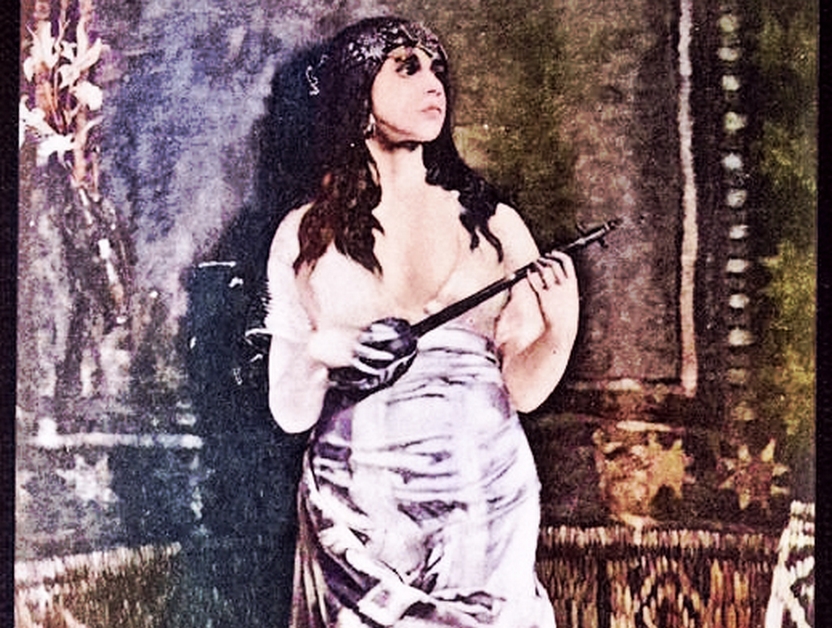Edirne (Adrianople), is a town in Turkey located in eastern Thrace near the Turkish-Greek-Bulgarian frontier. It was an important center of Jewish life and learning in the Ottoman Empire. During the 19th century, owing to the decline of the Ottoman central authority, the Jews suffered from blood libels spread by the Armenians (1871–1872), and at the beginning of the 20th century they were affected by the rise of nationalism in the Balkans and the invasion of the Bulgarians in 1913. The Jews of Edirne played an important part in the city's economy and the Jewish economic elite was composed of moneylenders and traders. The Jews lived in various neighborhoods in the city according to their professions, and each neighborhood maintained its own community organization, synagogue, and bet din under the general supervision of the Hakham Bashi (chief rabbi). The first Hakham Bashi, was appointed in 1836 as part of the formal recognition of the Ottoman Jewish community. Until the end of the 19th century, there was also a Karaite community in Edirne. The collection includes materials that reflect a wide range of religious, social, economic and cultural aspects of Jewish life in Edirne during the 19th-20th centuries. It includes numerous records regarding the organization of the community, its management and its welfare system: the rabbinate's correspondence with communities and individuals in different places in Turkey and the world (including Istanbul, Paris, Barcelona, Plovdiv, New York, Jerusalem, Tel-Aviv and more); the rabbinate's and council’s financial documents and papers on taxation; minutes of the community’s council and its correspondence; records of the Bikur Holim (aid to the sick) society. An important part of the collection is materials related to Jewish religious life and education: papers of the Great Synagogue; providing matzah and kosher meat; records concerning matrimonial matters; materials regarding the Jewish school. There are also documents of Jewish merchants (ledgers, papers on property, etc.), various printed materials, vital data of the Jewish residents, and photographs connected with Jewish institutions and Jewish life in Edirne --

| Title |
Edirne. |
|---|---|
| Contributors |
Baruch ben Isaac di,Ṭrani 1847-1919 Abraham,Danon 1857-1925 J.Halevy (Joseph), 1827-1917 Cercle israélite d'Edirne Alliance israélite universelle (Turkey) |
| Host Item |
Edirne - Jewish Community |
| Level of Description |
Fonds Record |
| Biographical summary |
Edirne (Adrianople), is a town in Turkey located near the Greek frontier. The town was an important center of Jewish life and learning in the Ottoman Empire. In 1873 there were approximately 12,000 Jews in the town during 1903-11, 17,000. Before WWI their numbers rose to 28,000. But thereafter, following impoverishment of the Jewish population due to wars and emigration (to Salonika, Palestine, and the United States), they declined to 13,000 in 1921-1922, 2,000 in 1943, and 400 in 1965. Each neighborhood maintained its own community organization, synagogue, and bet din under the general supervision of Hakham Bashi (the city's chief rabbi). During the second half of the 19th century, Jews suffered from blood libels spread by the Armenians, and in 1913 were harmed by invasion by the Bulgarians. The Haskalah movement penetrated the town through the philologist Joseph Halevy (1827–1917). In 1867 and 1870 the Alliance Israélite Universelle opened schools for boys and for girls. In addition, a school– akedah Yitzḥak – was opened by a writer, historian, and poet Baruch b. Isaac Mitrani (1847–1919). In 1891 Abraham Danon (1857–1925) opened a rabbinical seminary that taught both secular and religious subjects. The teaching was partly in Turkish, but the seminary moved to Istanbul in 1898. At the beginning of the 20th century, alumni associations – including reading clubs and mutual-aid fraternities - were established in Edirne. In 1905 a great fire destroyed all 13 synagogues in Edirne. Two years later the community constructed a new synagogue, which was modeled on the synagogue of Vienna. |
| Language Note |
Turkish Ottoman Turkish Hebrew Ladino French |
| National Library system number |
990041762200205171 |
| Links |
פרטים על מיקום החומר/Location&access |
-
-
-
-
-
-
-
-
-
-
-
-
-
-
- Show Next 10 Items out of 78
- Show All
-
-
-
-
-
-
-
תנאי השימוש:
Appropriate Conditions of Use Have Been Established for Every Archive File
The terms of use appear on the archival file page on the National Library website.
For more information about the copyright status inquiry service and terms of use for items from the Library’s collections, click here.
MARC RECORDS
Have more information? Found a mistake?

 Sign in with Google
Sign in with Google
 Sign in with Facebook
Sign in with Facebook




